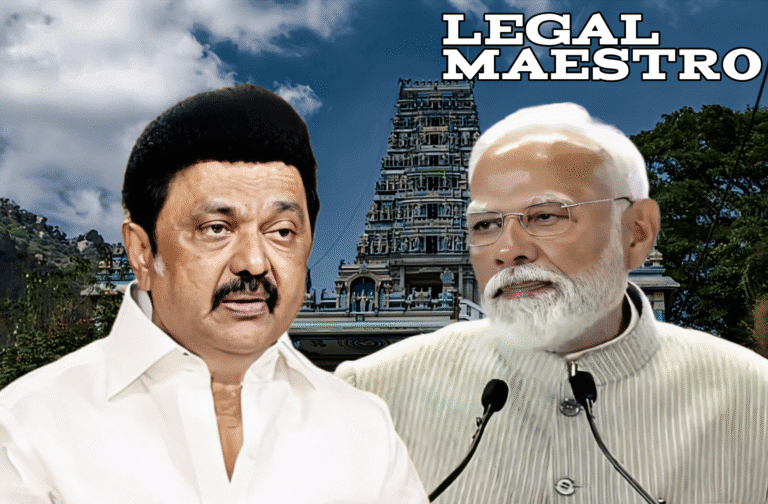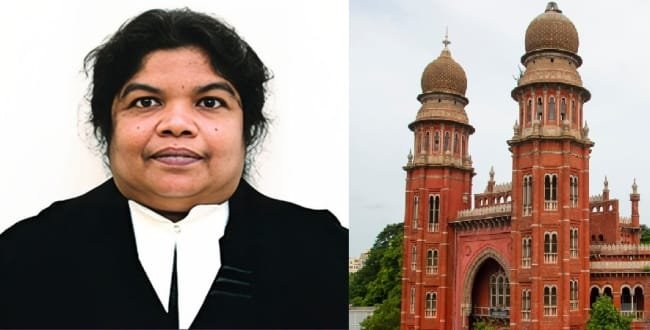
Supreme Court Mandates Minimum Practice Of 3 Years As Advocate To Enter Judicial Service
Post 3 year experience rule- I have witnessed increasing anxiety and hopelessness among several law students.
It’s also because economic interests of Coaching Classes convinced them to believe that the 3 year rule won’t see the light of day. And to be honest, the students had no real choice.
Now that the Judgment has been delivered- the students need to bring acceptance in their mind and plan for alternate careers.
For any queries or to publish an article or post or advertisement on our platform, do call at +91 6377460764 or email us at contact@legalmaestros.com.
But is it so bad? If we use the cliché qote – “Is it a boon or bane”? Trust me it’s a boon. Judiciary exam vacancies were not released every year for all major states. The number of vacancies released was negligible and the competition was increasing every year.
Adding to the misery of students the results of exam were changed or delayed due to default of examining body by not releasing the correct answer key in the first go.
Your selection in the services thus also depended on the following-
1. Whether the vacancy is released.
2. If yes, are sufficient vacancies being released.
3. Are these vacancies of the state for which you prepared?
4. Is the pre exam answer key mostly correct?
And if after a huge struggle somehow you clear pre, mains come as a new challenge. Apart from Delhi and few other states, most of the states ask simple descriptive questions. It’s very difficult to frame unique answer for questions like- write a note on Gift or differentiate between murder and culpable homicide etc.
In such a scenario memory often trumps over the ability to understand law and apply legal reasoning. No matter how passionate you were about law , a student who has made notes and writes simple answers in the language of bare act might get an edge. Any way, it will be difficult to predict which answer will gain more weightage.
If problem based questions or questions asking for critical analysis are asked, then students have to apply their mind. In such exams it’s comparatively easier to gain a differential factor from others by reading cases and strengthening legal reasoning. But this is not the case with these exams most of the times.
What happens then? A student somehow Clears pre and fails mains. Or he fails interview. Then thinking that he is very close he gives another year and so on.
It’s like a Chakravyuh. Students get caught in the endless loop. Their employability decreases and they have very few options other than somehow cracking the exam- the exam which has made them suffer for years and is uncertain in several ways.
In our college lectures we were taught that the job of legal expert is not to know the law like a robot. He must be able to find, understand and apply the law. But in Prelims and mains, most of the exam is about your knowledge or information regarding law.
So even if you master the Bare acts and prepare model answers to all or most of the questions asked in previous years and University exams, you still haven’t gained a skill which might be helpful in the real world. The exam takes up your extra time which you could have used for learning about research, drafting or attending a course on IPR etc. You are barely able to manage court work. Many are not even able to do that.
And in return you just know the index of the Bare Act by heart and can reproduce book like answers to purely theoretical and basic questions. All this can be obtained in a second through a simple Google search. All the years outside exam don’t mean a lot.
So when I see a student depressed post the Judgment. I just feel it’s alright!!
Actually it’s not at all sad.
It’s in your favor.
It’s a boon.
The decision will protect you from the trap.
Still several thoughts come to my mind. The Court should have considered the Quality and nature of exam too. It’s correct that experience is necessary to get better Judges. But the nature of exam must also improve to filter better candidates. The Exam should have application based questions and legal reasoning shall be given more weightage.
A student who is in habit of reading Judgments can learn a lot about law through mere reading. Our teachers used to say that there’s no better book than judgments.
Exam determines the culture of legal education. Several students refuse to read a single word beyond bare act and Coaching notes or guide books because it might be counter productive for exams. Under senior they may specialize on a particular branch of law and may not gain over all experience of all the relevant laws.
In such a scenario, we need exams which test their understanding and ability to apply different laws in real life scenarios.
If we don’t take the nature of exams very seriously, it will still be difficult to get better Judges even after the 3 year criterion.
Though the need for a 3 year rule wasn’t defined by specific evidence. The specific problems which occurred because of Judges without 3 years experience were not pointed out.
Yet, it can still be argued that reading of Judgments is crucial. Judgments not only prepare us for black letter of law and it’s application. They often contain philosophy behind law and lay down ideals which need to be adhered to achieve a just society. Justice Chandrachud famously qoted Bob Dylan in one of his landmark Judgments. “The answer my friend is blowing in the wind” line brought to our attention the indifference which we have and is very easily visible yet ignored. The Judgment on stopping arbitrary use of bulldozers expressed the plight of poor and middle class people who lose their homes. It starts with a beautiful Hindi poem showing importance of “Ghar”. A person who has read the Supreme Court and High Court Judgments of recent years gets to learn a lot about society. Judgments are not imposition of certain values. They are based on Constitutional principles and legal reasoning. Upon reading Judgments one gets to learn about multiple perspectives on an issue and how the questions involving ethical, political and several other conflicting claims are to be decided in a just manner according to law. Judgments also teach us about society and Justice.
A student who has read landmark judgments and the Judgments of his time will have better understanding of law and society.
This will help to decide in lesser time and with appropriate legal reasoning. Knowledge of Judgments will increase the speed and quality of adjudication then mere memorization of bare act indexes and academic text books.
It’s not the case that Judiciary exams are devoid of legal reasoning. Mains exam have a paper on Judgment writing. And some questions might ask students to apply or critically evaluate the law.
But the argument that I want to put forward is that a percentage should be determined. Efforts should be made to ensure that more weightage is given to analytical and problem based questions in all stages of Exams.
For example :
A rule can be brought that 70% of the paper will be on problem based questions.
Out of the remaining 30% important descriptive and critical evaluation based questions can be asked.
Not just the eligibility criterion but the nature of exams also should be considered in order to bring the best results for the legal system and society.







